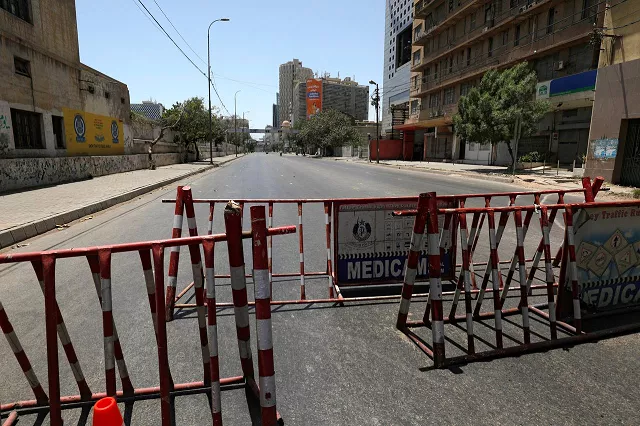Between the devil and the deep sea?
Lifting the lockdown at such a critical time could mean a human disaster of equal proportion
The journey into the unknown is still on. The world still does not know when and how it would get rid of the devastating pandemic — Covid-19. Many countries have started claiming that within their borders the worst is over as the number of positive cases and deaths have gone down. Still, nobody seems sure if it is what it seems or just a deceptive pause. In Pakistan they say the worst is still to come. Yet, many of us take comfort in the perceived fact that the number of incidents and deaths have so far remained too insignificant compared to those reported in Iran, Italy, Spain, the US and the UK. But even this relatively low incidence of positives and deaths has already tested our health infrastructure to its limits. Medical experts are worried that if the worst really came to pass and the curve took a steep trajectory, the country’s available medical facilities like hospitals, beds, testing capacities and other medical support like ventilators, as well as nursing, paramedical staff and doctors would simply collapse. Pakistan decided to impose a lockdown around the last week of March and until the outgoing week it had held with various degrees of success. Nowhere did it turn into a curfew. Neither was it a complete one anywhere. The worst violations of the instructions were committed by the mosque authorities who even after having agreed to a 20-point Standard Operating Procedure (SOP) were seen taking liberties with the code of social distancing.Everyone can die from the virus, but the poor and sick die the most. The wealthy and middle-class office workers can isolate themselves at home. But the worst sufferers of the lockdown are those who live just above and below the poverty line as most live in small quarters normally packed with 10-15 family members, some even lacking proper toilet facilities and running water. During the ongoing lockdowns, no matter of what intensity and where, the poor did not know how to buy their next meal as even those who broke the lockdown found their sources of earnings had disappeared. Essential services, grocery outlets and transport remained operational which meant a good number of people were out on the roads but without masks or moving without observing social distancing.
Pakistan’s economy which had already been in the intensive care unit (ICU) went into a tailspin due to the pandemic, deepening further the ongoing recession induced earlier by an IMF-driven austerity programme launched in April 2019. So, with the economy coming to a chugging slowdown on the one hand and on the other the worst of the pandemic still to come, the choice for the government was between the devil and the deep sea. Continuing with even an incomplete lockdown was bound to end soon in a social upheaval of gigantic proportion on the streets. Meanwhile, lifting the lockdown at such a critical time could mean a human disaster of equal proportion.
Here is a pertinent quote from The Financial Times by Karin Pettersson (It’s a Virus and This Isn’t a War, published on May 5), “It (FT ‘The Virus Lays Bare the Frailty of the Social Contract’ written by the newspaper’s editorial board) argued that the prevailing policy direction of recent years had to be reversed, and that proposals such as universal basic income and increased wealth taxes had to be considered — ideas so far only discussed in much more radical circles.”
What has been decided officially by the NCOC seems to be something midway of the two impossible choices — smart lockdown! Businesses including factories, restaurants and other such outlets would be allowed to open but under strict SOPs distinct for each activity and under strict monitoring. Limited train service and domestic air travel between selected cities are also being contemplated. No doubt such ideas can be easily conjured up at official levels, but it is at the implementation stage that these smart ideas get tested for their soundness and execution.
Published in The Express Tribune, May 9th, 2020.
Like Opinion & Editorial on Facebook, follow @ETOpEd on Twitter to receive all updates on all our daily pieces.


COMMENTS
Comments are moderated and generally will be posted if they are on-topic and not abusive.
For more information, please see our Comments FAQ